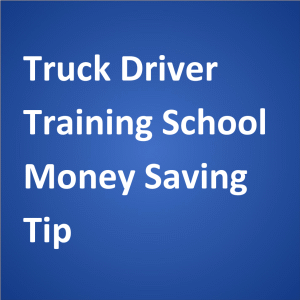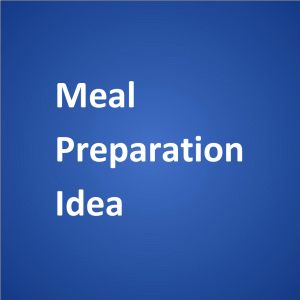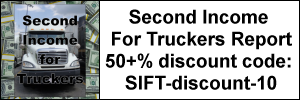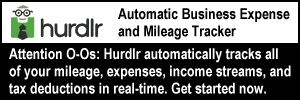By: Josh,
New York
 This is a really convenient site for a newbie like myself. I am registered at a PTDI trucking school and scheduled to begin training on December 5th 2011.
This is a really convenient site for a newbie like myself. I am registered at a PTDI trucking school and scheduled to begin training on December 5th 2011.
I was quite puzzled about the packing list, money saving possibilities, and especially the advantages and ways of cooking food on the road. I was obtaining a few bits of information about these items but this website helped closed the gap by quite a bit.
However, the one thing I don’t seem to understand is Income and Expenses. The admirable quality about the information on this website is that it is the first website that mentions income and expense in the same sentence. I don’t know why folks think they can discuss income without expense or expense without income.
The Problem:
The suggested expected income for OTR newbies seems to be $850/week. As a guide, I have used the packing list on this site;http://www.newbiedriver.com/articles/What_To_Take_With_You.htm
I have added some items that is suggested on other packing list examples and I’ve omitted some items, and I’ve added expenses unique to me, but for the most part my list is becoming very similar to the one on the link.
My list is not yet complete and I seem to be left with $7000/year after expenses. One of the expenses not yet on my list is rent or a mortgage payment. If I were to assume a rent of $900/month, that’s $10,800/year, which is greater than the $7000/year I have available to spend. I am therefore assuming that I am using the wrong list to estimate my expenses. And if a driver earns less than the assumed $850/week, the expense to income ration will only increase.
On the other hand, the packing list on the https://truck-drivers-money-saving-tips.com/packing-list/ site seems to be an expense list I can work with.
So what is the difference between these two lists as it relates to expenses a driver incurs on the road. My guess is that the first list presents the expenses incurred on the road, but some of these expenses is the company’s to bear and some expenses are the drivers personal expenses. I have the tendency to conclude that the list on this site is a better guide to a drivers expenses.
I simply need the expenses the newbie driver incurs for the purpose of understanding the fortune left after subtracting the estimated expenses from the estimated income. If Some one can clarify so that I can proceed with the PDTI training with clarified thoughts and expectations, I will be grateful.
Thanks much.
Josh
—–
Response from Vicki:
Hello, Josh,
Thank you for your question. Congratulations on deciding to become a professional driver.
First, although this may disappoint you a bit, we will not compare what we have on our website with what someone else has on theirs regarding packing lists or income and expenses for drivers. We’re sure that based on their experience, they have written what they believe is accurate, just as based on our experience we have written what we believe is accurate.
We do have an entire section on our site dedicated to budgeting. As you indicated, a person must address both the income and expenses side of a budget.
We put our packing list (actually three of them) online as a guide. Not every person is going to have every single thing on the list. And there are things (like a GPS unit) that we don’t have on our list because we’ve never used them. Drivers of some types of trucks will find specialized items missing from our job-related packing list. For example, what a flatbed driver needs may vary from what a dry van driver needs. There is so much variation within the trucking industry, you see.
Regarding the expenses a newbie driver incurs, they will most likely vary from driver to driver and from company to company. There are some expenses that a driver pays for out-of-pocket that a good trucking company will reimburse you for, like tolls and permits. Depending on your company, there are other things for which you will not be reimbursed. For example, the last OTR trucking company Mike drove for dropped paying for truck washes once a month. In fact, the last truck wash Mike had done on the truck he drove, he paid for completely out of pocket, just because he wanted his truck to look nice! That was about $40.
I urge you to be conservative in your estimation of potential income. I’d be interested to know where you got the figure that the suggested expected income for new drivers is $850/week (assuming you mean after taxes). OTR drivers (at least all of them that we know of) are generally paid by the mile. There are lots of things that can interfere with getting a consistent paycheck from week to week. To figure your approximate income, multiply the cents per mile that you’ll be earning as a newbie by the average number of miles you’ll be running per week. Hypothetically,
$0.32 * 2500 = $800 (before taxes are taken out).
I do not know if you really think that you’re going to have a “fortune” left after your expenses or if you used that word tongue-in-cheek. Many a trucking company likes to paint itself as paying big bucks — refer to our recruiters page for questions to ask — but the truth is that truckers generally spend a lot of time on the road for which they are not paid. Please do not fall prey to rose-colored glasses-type thinking. We address the issue of a truck driver salary and also have a link at the bottom of our truck driving jobs page to a report that includes average truck driver salaries by state.
Even though Mike has about 12 years of experience and now has a local truck driving job, he wishes he could clear $850/week. That just doesn’t happen for him. Again, please be conservative in your estimation of income.
You mentioned an expense of $900/month in rent. That’s a lot — especially if you won’t be there much. When Mike and I started in trucking, we were renting. When we got on the road as a team, we were “home” so infrequently that we put everything in storage and lived in the truck (were “homeless“). That saved us not only the rent, but the water, electricity, phone, and all of the other stuff that goes with setting up housekeeping. Depending on your situation, you may or may not be able to give up a home. But be sure that you have a steady job before packing up. Another option is to consider a lower-rent place or renting with someone else (assuming you can) or just getting a room at a local hotel or motel occasionally.
Although we have addressed tax deductions on our site, you will see that the list is old. To be on the safe side, we recommend that you have your accountant (or software program, if you file yourself) deduct all of your legitimate work-related expenses. Keep all of your receipts and keep meticulous records so that you’ll know what is what at the end of the year.
You will find that on the road, you’ll have to flex. Things will not be carved in stone regarding your income or expenses. Plan for the best but prepare for the worst. Remember that rookies generally get “junk miles” because their companies want to see if they can prove themselves. Unless you have an inside connection, you won’t get “gravy loads” until you’ve proven yourself, generally with at least one year OTR experience including a winter driving season. There is good money to be made in trucking, but you need to be realistic, too.
I trust that this has been helpful. When you make it out on the road, we wish you safe travels and lots of money saving opportunities.
Best regards,
Vicki Simons
https://truck-drivers-money-saving-tips.com/
—– Comment —–
$850/week beginner’s income? by Josh
Date: Nov 30, 2011
I got the $850/week value from what appears to be the only PTDI driving school within 30 miles of address. I assumed they meant $850 before taxes. I also inquired on a truckers forum about a income and expenses. The replies I received was with reference to expenses only, so I assumed that they did not respond to the $850/week because this value wasn’t annoying enough for them to remember I asked about it. So I concluded that $850/week was a close to a reasonable expectation, and because I am conservative, I figured I would earn $800/week before tax. Please let me know if I am on the right track.
When I used the word “fortune”, I was going for sarcasm. I should have captioned the word when I used it.
Josh
—–
OK, Josh. Income varies within trucking and I understand the “fortune” sarcasm. We wish you the best in your journey toward becoming a professional truck driver.
Best regards,
Vicki










